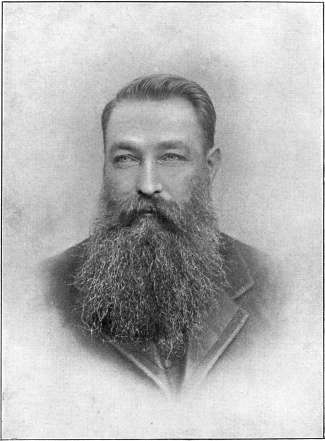Last week, the South African Academy of Science and Art has published my research on one of the Dutch settlers and commanders in the Anglo-Boer War, Christiaan van der Post. He was the unofficial chronicler of the life and times of Piet Uys, one of the leaders of the Great Trek, as Dutch Reformed settlers fled from British occupation in the Cape Colony and sought to establish their own republics on the African continent.
Christiaan Willem Hendrik van der Post (1856–1914) was a remarkable writer whose work on the life of Dutch protestant settlers constitutes an important contribution to the understanding of faith and race among the Boers in 19th century South Africa. Unlike the prevailing values of the Victorian age in England, Van der Post’s book on the Voortrekker epoch, Piet Uijs or the suffering and struggle of the Voortrekkers in Natal does not in any way endorse or promote a racist outlook on colonial settlement in Africa, but instead tells a story of faith, humility, courage and the rule of law.
Boer War
Van der Post was a man of many talents. He contributed to the Republic of the Orange Free State as a teacher, farmer and historian. In the period before the Anglo-Boer War he established one of the largest law firms in the Free State. He always remained a Dutchman, with a calling in Africa. For many years he was the Dutch consul in the Orange Free State,
based in Fauresmith, as well as a member of the “Volksraad” (Parliament) of the Orange Free State for this district and a collaborator of president Steyn. He also served as the “Volksraad’s” chairman for a year. During the Boer war he became commandant of the Boer forces in the south and east of the capital Bloemfontein. Even after nearly all his men had
surrendered, he continued to fight, reassembled a commando and was eventually captured in the Transvaal. Van der Post was a man of principle. After the war he only returned to the Free State when he could do so without pledging his allegiance to the British Crown.
Faith and leadership
This article argues, departing from his book Piet Uijs, that Van der Post’s faith was decisive for his outlook on life. In Voortrekker leader Piet Uijs he recognised similar principles: a reformed conviction that viewed life from a theocratic perspective. God was the sovereign creator to whom all men owed obedience. His Laws were right and following His guidance was commendable, even if obedience did not result in material gain or social success. His chronicle on Piet Uijs shows that faith, humility and righteousness have an intrinsic value that continue to inspire other people and subsequent generations.
A true Christian leader is capable of independent judgement on the basis of the principles of God’s Word. As far as these were concerned, faith was the substance of things hoped for, the evidence of things that could not be seen as yet (Hebrew 11:1). Like the heroes of faith in Paul’s Epistle to the Hebrews, it may be said about the main characters of Van der Post’s story that “These all died in faith, not having received the promises, but having seen them afar off, and were persuaded of them, and embraced them, and confessed that they were strangers and pilgrims on the earth” (Hebrew 11:13, KJV).
Greek drama & lasting values
Van der Post’s interpretation of this episode of the Great Trek is a far cry from the nationalistic mythmaking of later generations (e.g. Gustav Preller). Racism does not play a role in this book, and unlike his English Victorian contemporaries, Van der Post cherishes optimistic expectations of faith and ultimate civilisation for the pagan tribes of Africa. His chronicle of Piet Uijs’s enterprise ends in a complete failure for the latter, yet it was nonetheless inspirational as a compass of faith, brotherly love and an unselfish commitment to the rule of law.
Download Faith and Theocracy (Journal of Humanities / Zeitschrift für Geisteswissenschaft)

